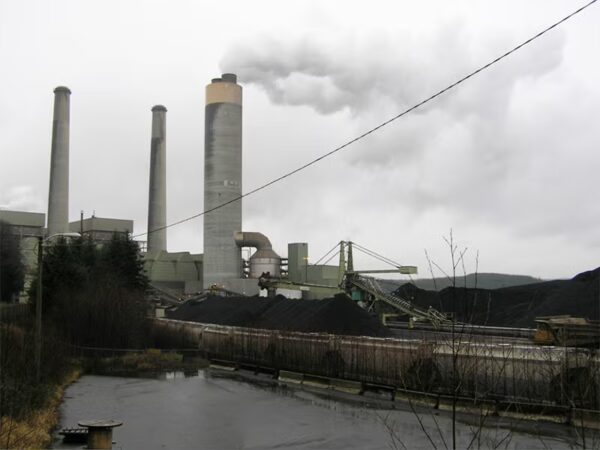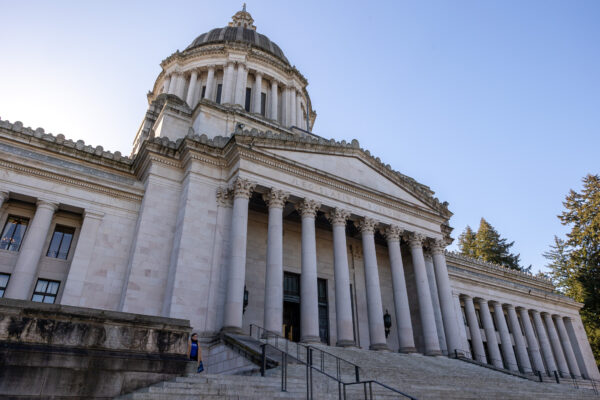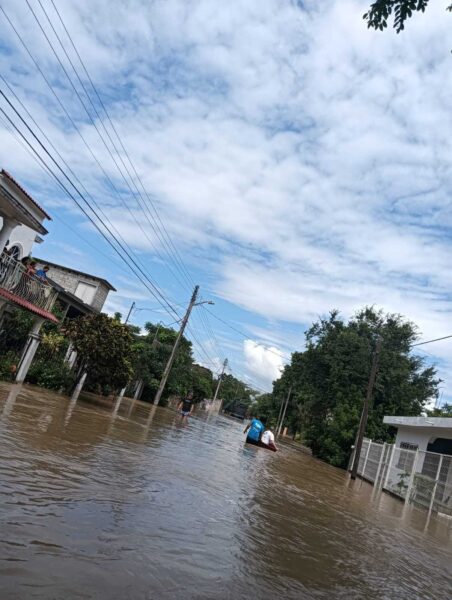Washington Conservation Action (WCA) is committed to amplifying the voices of our partners and of our communities. In that spirit, we are beginning a series of Q&A blogs featuring candidates and elected leaders connected to our organization from around the state.
Chelsea Dimas grew up in Sunnyside in the Yakima Valley. After graduating from Pacific Lutheran University in Parkland south of Tacoma, she spent most of her career working for social justice non-profit organizations such as Civil Survival, the Diversity Center, and Habitat for Humanity. She sees clearly the links between environmental justice and economic and racial justice. She’s been fighting for those things since she was a kid.
Dimas embraces life exuberantly, doting on her partner, her “pupperonis” (three chihuahua-dachshund mixes) and what she calls her many “plant babies.” Building on her art and design education, she wears bright colors, daring fashions, and collects tattoos. She also has deep knowledge of her community, of issues on the ground and local organizing, which are some of the many reasons that Washington Conservation Action has endorsed her in the race for state representative in the new 14th District. We believe that Dimas will put people and nature first – but do it with style.
The candidate sat down with us for a brief Q&A recently:
In interviews, you’ve said that your community knew you were running before you did. Why do you think that’s so? How has the campaign been so far?
I got my start on the frontlines, being at rallies, protesting. My parents were Indigenous people from Mexico. They ingrained in us that we had the power to speak up to the powerful, that there is power in numbers and power in community. They started taking me to the May Day March in Yakima when I was only eight or nine years old.
Those experiences made me gravitate toward community work and social justice. I worked on lots of campaigns and for lots of causes. Last year, I worked on six campaigns for Latino candidates for school board and city council in Sunnyside. We flipped four of those seats. People started asking, “When are you going to run? When are we doing this?”
I announced my candidacy last November because I knew I would need time. I don’t come from big money. Fundraising is incredibly difficult, and sometimes uncomfortable. People here are struggling, making hard decisions about whether to pay the rent or the electric bill. I grew up with that, and I’ve had to make those decisions too. I understand the financial situation of the people that I’m asking for donations. They donate because they see it as an investment in the future. I’m so grateful to my community for pushing me. And I’m thrilled that I made it through the Primary Election.
Why did you seek WCA’s endorsement? How has it affected your campaign?
Environmental justice has always been a core part of who I am, and it goes hand in hand with racial justice. Living in Central Washington, I’ve seen the impact when our resources are over-used: contaminated wells, dirty air, wildfires, extreme temperatures in summer. Big ag companies come in and they’ve done a lot without considering the community.
People are starting to ask questions: Why is it always our small town? Why is it always our neighborhoods? For instance, there’s been a big effort to stop a fertilizer plant in Sunnyside. I was able to support the organization leading that effort.
WCA does this work. Together, we can find ways to protect our communities, make sure that we have policies that protect our people here in the Yakima Valley, and protect the planet for future generations.
You are the child of Indigenous parents (Nahua and Purépecha) from Mexico, the first openly queer, Latinx, and Indigenous candidate to run for city council in Sunnyside. Now, you are again the first with that background to run for state representative. How does your identity inform your politics?
I’m very proud to be part of so many diverse communities. My identity has allowed me to understand and relate to so many people in our community. People assume everything in Central Washington is straight and conservative, that people here don’t believe in certain freedoms. It’s the opposite. We have such rich culture here, Latino and Indigenous communities, the LGBTQ community. People here are passionate about social justice. There is a lot of struggle here.
When people find something in common with me, that allows for conversation, the ability to learn from each other. Then we can figure out how we can work together to solve problems. My identity allows me to put myself in other people’s shoes.
Who I am, where I’m from, what I look like, challenges the idea of what a community leader is supposed to look like. I wear colorful clothes, t-shirts with union slogans, leggings. I’m not showing up at your door in heels and a dress. I’m proud to be a millennial, to be pushing for positive change. I hope that younger folks are paying attention to this race, seeing me, and maybe thinking, “I can do that too.”
You say that you’ve spent most of your life fighting for your “gente,” your people. Who are those people, and what do you see as their most urgent needs?
I’m passionate about supporting education, workers’ rights, affordable housing, quality healthcare, and preserving our natural resources. It’s really about centering the voices of people who’ve been unheard, unseen or forgotten about. That’s a lot of my community. I’m trying to continue to reach voters and communities that haven’t been invited to these spaces traditionally. A lot of people—farmworkers, teachers, healthcare workers, and many more—have been taken advantage of in this area. I want to do something about that.
You’ve said you’re voting “no” on I-2117 and I-2066. Why do you think these initiatives will be bad for people in the Yakima Valley?
For me, just knowing the people behind repealing all these laws, that’s a huge red flag. Knowing that the people behind these initiatives are incredibly wealthy, they’re trying to control our communities and central Washington has so many environmental issues. We need to protect our natural resources, not repeal laws that seek to preserve them, like our carbon law and laws to make buildings more efficient.
There’s a lot of misinformation out there: I see people standing outside Walmart, claiming that the laws they’re trying to repeal will stop us from having this and that. I’ve asked them, “Can you show me?” And they can’t. I hope people aren’t deceived.
How would you describe the links between environmental, racial, and economic injustice?
You can see who lives here, a lot of brown and Indigenous folks here. The poorest communities have to live with the consequences of those who profit. Our area is always dealing with big things, with things being passed without question. Who benefits? Not the brown people who work in the fields.
I’ll give you an example: We have these huge dairies here. That creates huge pools of waste, urine and so on. Not enough is done to contain this waste, and it gets into the water table.
One town in my district, Mabton, has contaminated wells because of this. They haven’t had clean water since 2013. They have to do water drives there, basically get people to donate bottled water, so that people in Mabton can afford to have clean water to drink. I was a substitute teacher in Mabton when I was first out of school, nearly 10 years ago. The water came out of the taps looking gross even then. It’s gotten worse since. People are getting sick, and the ineffective local leadership isn’t doing anything. This is a common theme throughout our district.
What’s your favorite season? How do you get outdoors then?
It used to be summer. But with the summer heat getting so extreme in recent years and with going door to door campaigning in that heat. I’ve begun to not like it so much. I’m leaning toward fall. I have never been so excited for fall. In the fall, it’s cooler. I love the changing trees. It’s such a beautiful time in central Washington. I’ll be hanging out on the porch with my partner and our fur babies. Maybe we’ll also find time to do a little camping.
Your donation ensures a sustainable future.


